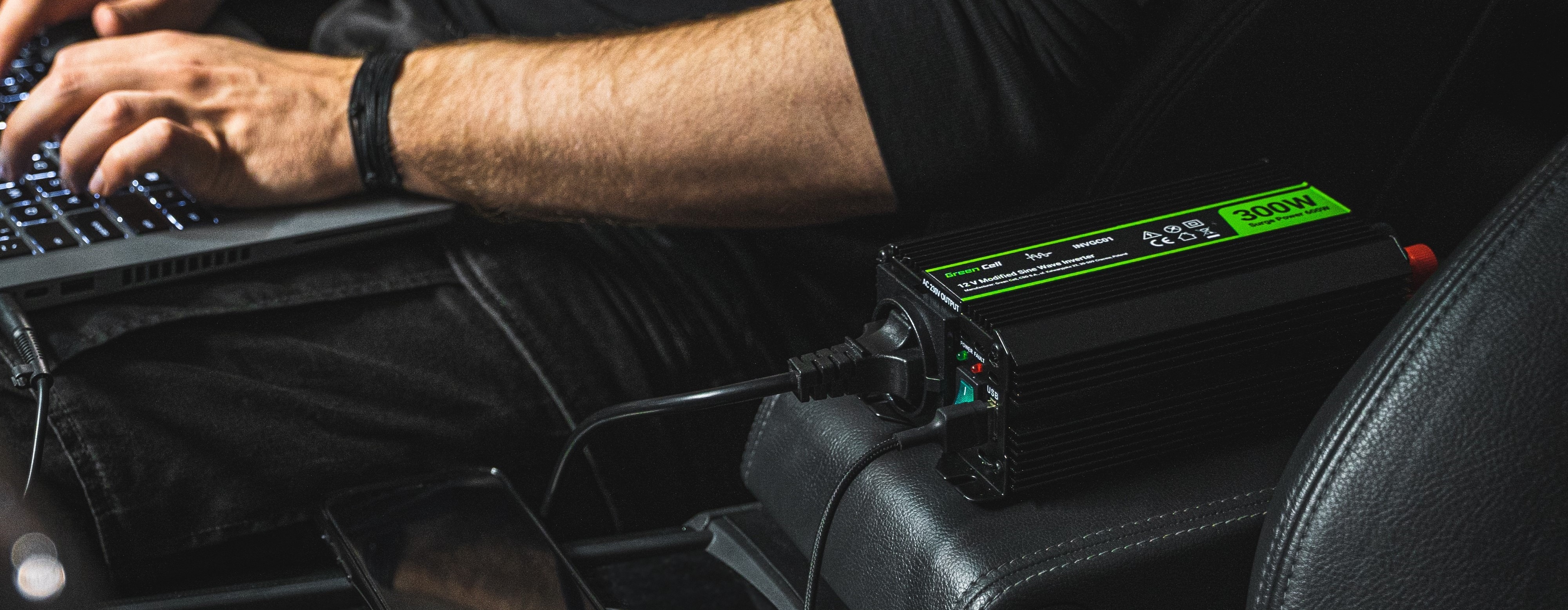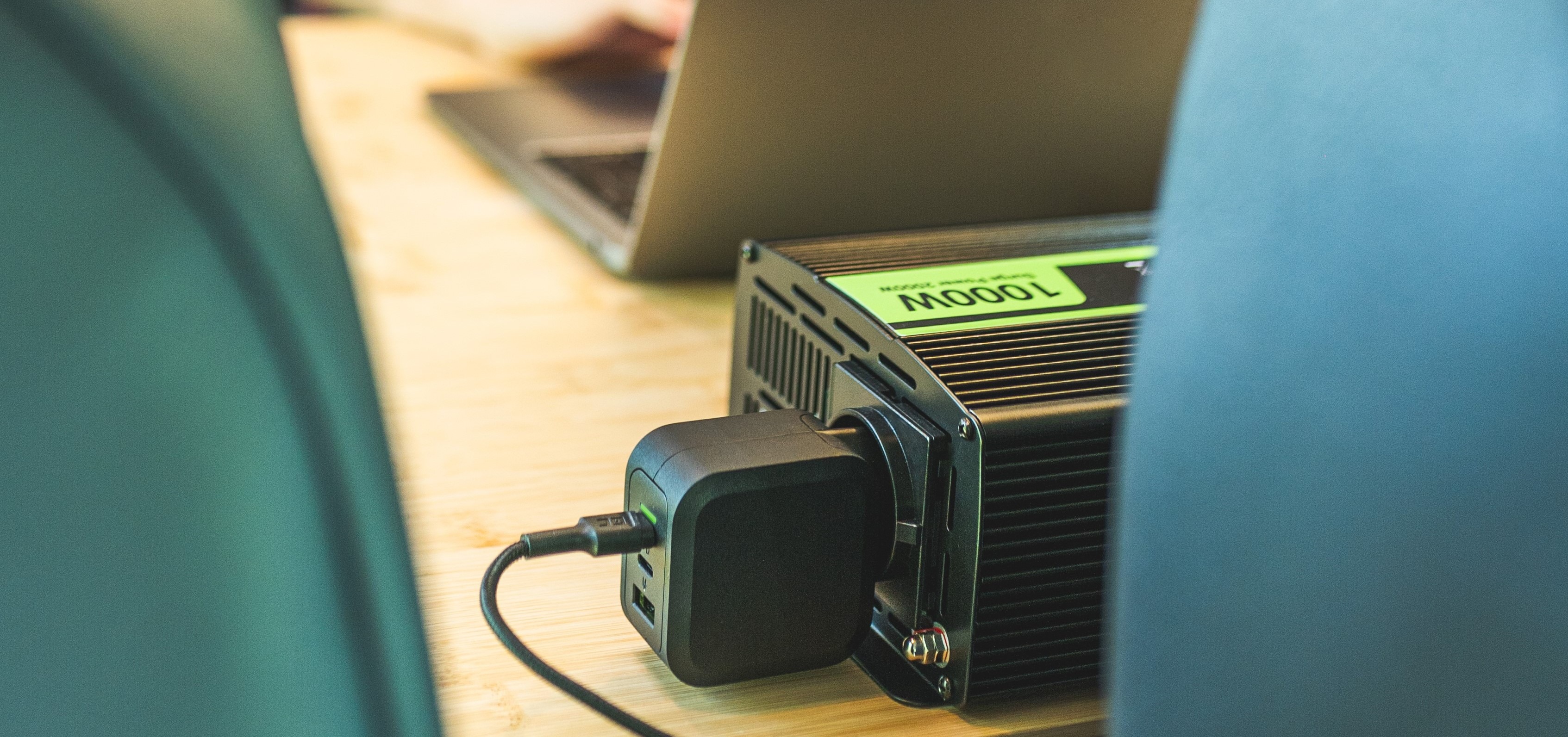Where to get electricity for the lawnmower if there is no access to utilities on the plot? How to use an ice maker at a lake party? How do you power a kettle in a campervan? These are questions to which the answer is very simple – just use an inverter.
Inverter – how it works
Most of the electrical appliances we use on a daily basis – a fridge, kettle, microwave, drill or TV – require AC power. We usually use a wall socket for this purpose. A voltage converter is a clever device that makes it possible to use alternating current in places where there is no access to it. All you need is access to a direct current source – that is, for example, a car battery, any AGM/LiFePO4 battery or a suitable battery. With the help of the inverter, it is possible to convert the current from direct current to alternating current and use appliances normally powered from the mains.
What’s better an inverter or a genset
The answer to this question is – it depends. Both solutions will help power appliances when AC is not available. However, using each requires different conditions. The genset is noisy and obtains energy by burning fuel. Unlike an inverter, it is therefore not possible to use it indoors (e.g. in a campervan or on a balcony in a block of flats). You also need to have a supply of oil or petrol. To use the inverter you need access to a battery. The inverter and battery are an inseparable pair. However, you can use a 12 V cigarette lighter socket, clamps (i.e. the popular ‘crocodile’) or a fixed attachment in the form of m6 and m8 terminals. You can also make a kit from Green Cell products – e.g. inverter + AGM battery or inverter + LiFePO4 battery. These batteries are very efficient. They can be recharged with photovoltaic panels, so the running costs of such a set are close to zero. In addition, the inverters do not emit fumes or other harmful substances, so they can be used indoors where people are present.
Which inverter to choose
Which inverter for a fridge and which one for a light bulb? There are many inverters available on the market with different parameters. Among other things, they differ in their voltage waveform, i.e. what kind of sine wave they produce. If an appliance requires a pure sine wave, i.e. the same as that found in an electrical socket (e.g. fridge, microwave and other appliances with induction motors), an inverter with a pure sine wave is better suited. For less demanding appliances, e.g. light bulbs, a laptop, kettle, computer or any other appliance that runs on a modified sine wave without problems, a modified sine wave inverter can be chosen. Another important difference is the power of the inverter, which tells us how many and which devices it is able to supply with current. If you want to connect a device of your choice to the inverter, you must check the power consumption on the nameplate (if you want to connect more devices, the powers must be added together). The power consumed by the appliances should not exceed 85 per cent of the inverter’s rated power. Finally, inverters differ in terms of the voltage of the power source, e.g. the car battery (cars are fitted with 12V electrical systems and trucks with 24V).

Where to buy an inverter
At Battery World, you can find a wide range of inverters from the Green Cell brand. Whether you need an inverter to heat water in your kettle, an inverter for your power tools or an inverter for your long-haul truck or perhaps an inverter for your camper van on holiday. There is a suitable product for everyone. Green Cell offers inverters – depending on the model – equipped with one or several mains sockets, adapted to the most common European schuko plug. Knowing what you’ll be using it for, all you have to do is choose the right wattage and voltage, throw the product in your shopping basket and, once purchased, enjoy access to an outlet wherever you need alternating current.
Check out our range or contact our Customer Service who will be happy to advise you on the right inverter.
Related posts
Most viewed entries
- Polish Inventors Who Changed the World – Do You Know Them All?
- The Scariest Myths About Electronic Devices – Halloween 2024
- The history of bicycle – International Bicycle Day
- Electricity in a camper van on holiday – a conundrum easily solve
- Off-grid installation on a plot. Is it worth it?
- Charging your electric car at home without a wallbox

